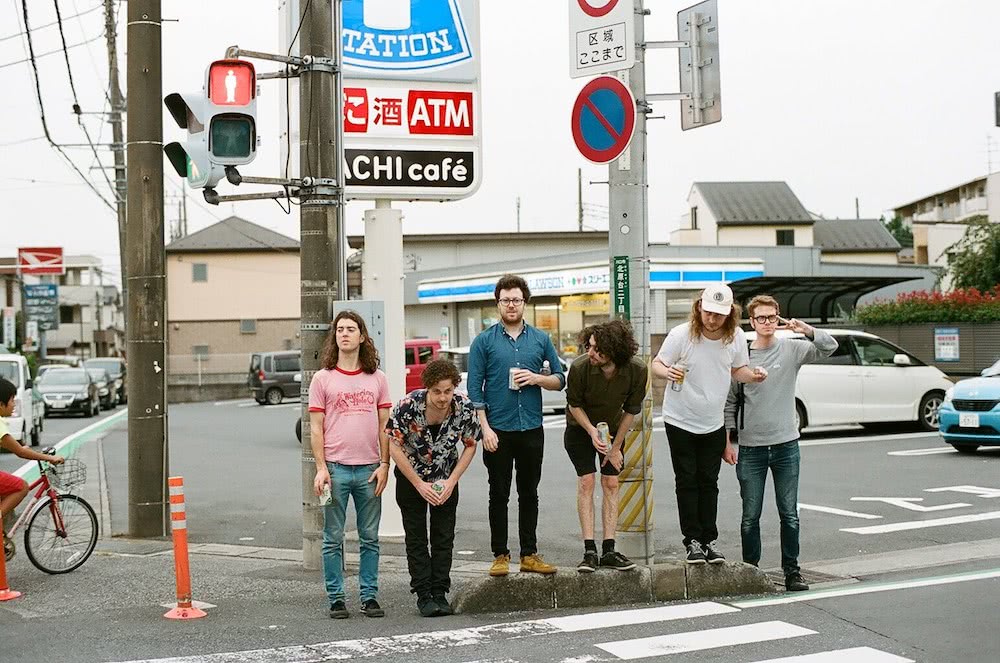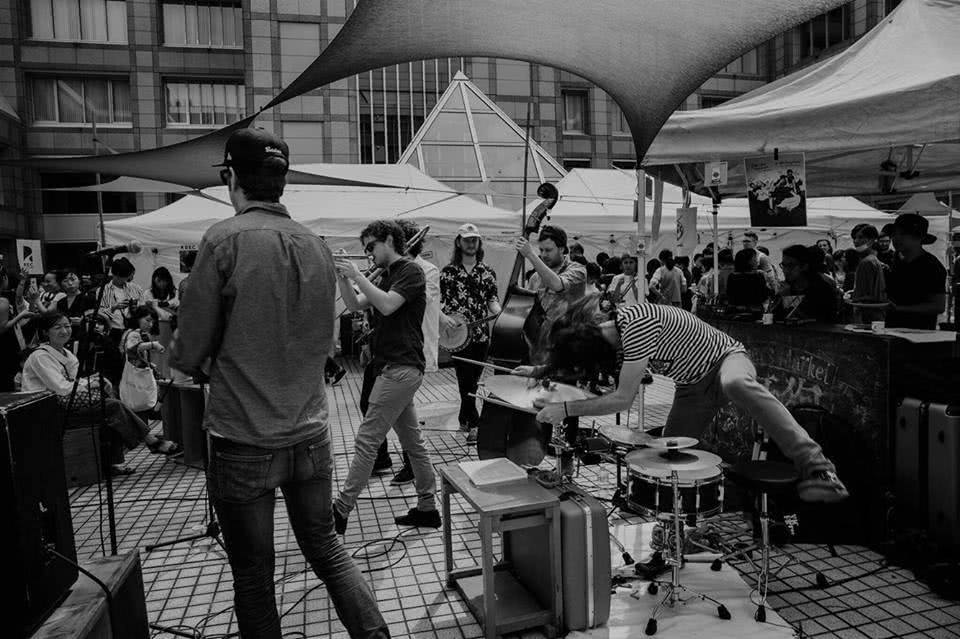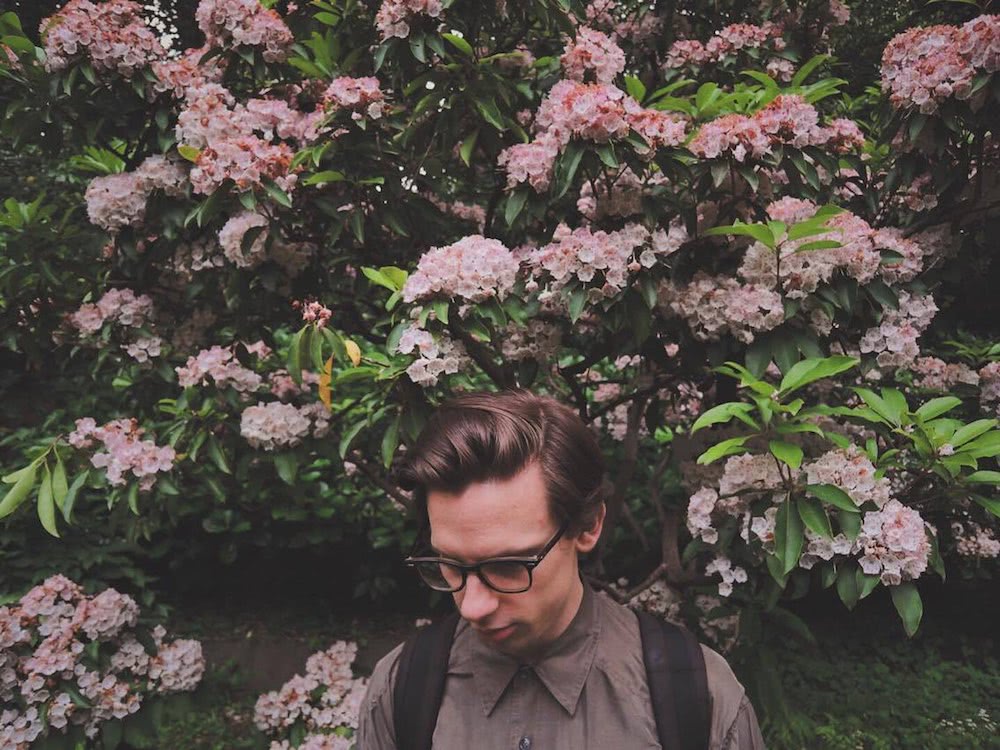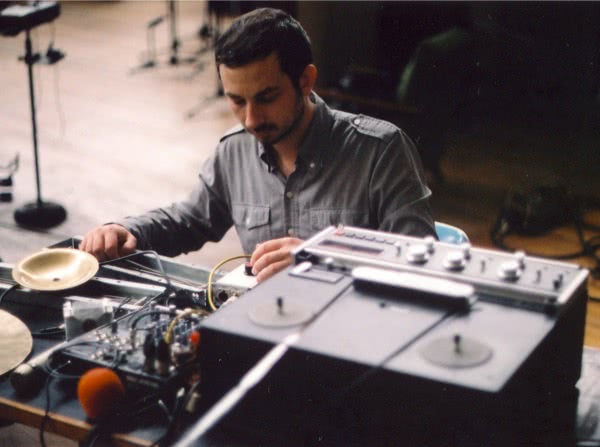How Aussies are embedding themselves in the Tokyo music scene

The whole trope of a foreign band being “big in Japan” is one that’s been done to death.
In the 1960s surf garage rockers The Ventures were arguably the instigators of the cliche. They were a pop group moderately successful (in 1960s rock standards) in their home country of the US, but in Japan the band were so popular their records outsold the Beatles by a ratio of two to one, and now, 66 years after their formation an incarnation of the group still tours the country on an annual basis.
But that’s the past, plus that’s an American example. What about Aussie bands?
The Tokyo neighbourhoods of Shimokitazawa and Koenji are home to more venues than the entire city of Melbourne. The sound systems are some of the best in the world. It’s closer than the US or the UK and far less competitive, plus daily living expenses are chump change compared to a night out in Sydney. So why aren’t more Australian bands trying to get a gig here?
We spoke with three Tokyo-based Australian musicians who have managed to carve out an impressive music career in Japan to learn just how they did it and what it took.
Marty Holoubek is a member of The Lagerphones, a Melbourne based group who are about to tour Japan for the fourth time in as many years.
He’s also played in Sex on Toast and in a cluster of jazz groups in Australia and Japan. This year he moved to Japan to work full-time as a musician playing live in venues across the country most nights of the week.
Joe Talia is an Australian drummer, composer and record producer/engineer who first came to Japan in 2013 and visited a number of times before moving officially in 2016. He works as a record producer/engineer and musician in Tokyo.
Marty Hicks is a multi-instrumentalist and DJ who moved to Tokyo in April 2015, but also lived in Kyoto for half a year in 2013. He recently got his Masters in Music Composition at Tokyo University of the Arts.
Alongside composing for sound and video art, film and other visual media he plays solo. Prior to moving to Japan he played piano and keyboard in bands Sex on Toast and Leisure Center.
In a general sense, how have you found the experience of being a working musician in Japan?
Holoubek: As it’s early days here it’s hard to give an accurate portrayal. At the time of answering this I’ve been ‘living’ here for a month. However it’s looking like it’s going to be great!
I’ve had about six gigs in two weeks and then I’m pretty much booked for the next two months. After that, we’ll see what happens. In the words of the incredible pianist and long time colleague James Bowers, “It could be good!”
I first came to Japan on a bit of a whim with a band I’m in called The Lagerphones in 2015. After this incredible first experience I decided that I wanted to give living in Japan a go.
At the beginning of 2016, I moved to Tokyo for three months on the tourist visa just to see what it was like. I lived in a place called Toshimaen, which is still my favourite part of Tokyo.
There were bad parts though, I was living in a tiny apartment by myself with no english-speaking friends close by, I was drinking heavily as the friends I’d made was from sitting around drinking and me speaking sub-par Japanese. I ended up feeling incredibly isolated, anxious and alone.
Since then, I’ve been back to Japan on tour every September with The Lagerphones and now have finally made the move (again)!

The Lagerphones
Talia: Now things are great, but that took a couple of years. I was lucky to have some very supportive friends in the scene from the beginning, I honestly don’t know how I could have made it without them.
Learning the language has also made things a lot easier. I’m generally busier here than I was in Melbourne and the music scene feels never ending, I’m constantly discovering new pockets, and scenes within scenes.
In a practical sense, how would you say Japan and Australia compare in terms of the live music scene?
Hicks: Both of them have their pros and cons, and I guess in a lot of ways they’re really similar.
If I had to highlight something, I’d say that I don’t really find any pretension amongst musicians here [in Japan]. There’s no real hierarchy, and there just seems to be an overall enthusiasm for musical performance in general, regardless of its caliber.
Japan kind of sets the standard for gig audience etiquette as well – super responsive, or attentive, whichever the occasion calls for.
What would a pros and cons list of Japan’s music scene look like from a musician’s perspective?
Hicks: The first thing that comes to mind is its diversity. I guess it comes with the size of the population, but there’s really something here for everyone.
There can be a lot of room for expression – I’ve seen a lot of free improvisation or experimental gigs that have an exciting sense of originality, and some of them have been in fairly esteemed venues; I saw an amazing performance of drone music at a Buddhist temple for instance.

Marty Hicks
There are a plethora of very tiny live venues in Tokyo. A lot of the places that hold jazz and experimental gigs are often no bigger than the size of somebody’s lounge room, so even if just a few people rock up it still feels like you’ve done a good job getting people to the gig.
It’s quite different to playing in a pub in Melbourne on a weeknight and performing to a large room with only a handful of people.
It could be a ‘con’ but I sometimes notice that Japanese audiences can be pretty quiet. I’m sure it really depends on the gig, but they’re always very well behaved and respectful. A couple of times I’ve gone to see a gig, and I’ve felt rude and disruptive when taking a sip from my beer, or tried to go to the bathroom without making noise.
Did you have any preconceptions about playing in Japan before you came?
Talia: I really had no preconceptions before playing in Japan, it was totally unknown to me. I did hear that Japanese audiences are very quiet and attentive, which certainly was the case.
I wasn’t prepared for the high level of care that venues provided, having backline and support staff, especially in larger venues was a pleasant surprise.
Holoubek: I had no idea what to expect from Japanese audiences but from what I’ve found, they’re incredibly appreciative and avid music lovers. It’s been a real nice change to experience such a love for live music.
Watch ‘The Lagerphones in Tokyo’ below:
What’s the easiest aspect of being a musician in Japan?
Hicks: Lots and lots of people in the music industry here are incredibly nice people, and even just by chatting briefly to some artists or owners of venues I meet at gigs I’ve been lucky to enough to be invited to play alongside them, or for some really exciting events that they organise.
I’ve had a lot of really positive musical and artistic experiences here that I’ve been able to have largely thanks to the enthusiasm and kindness of a lot of the musicians and artists I’ve met. Also, there’s a lot of gear that can be bought much more easily (and sometimes cheaper) than from inside Australia.
As someone who has been here a little while now, what’s the biggest challenge?
Hicks: Probably as is the case in a lot of other foreign countries, I guess the main difference between being a native Japanese musician and being a ‘foreign’ musician in Japan is whether or not you speak Japanese.
Communication is really important when contacting venue bookers, organising a gig, and sorting out really complicated things like sound on the night, so there’s a lot of pressure in being able to express what you want in those situations.
I speak Japanese but even then it’s been a real learning experience, as the kind of language that people use during a sound check for instance tends to be peppered with terminology that textbooks can’t teach you.
Could Aussies find more success here? How?
Talia: Oh absolutely. especially if they keep coming back on a regular basis, that seems to help here, cover charges are expensive and Tokyo is so big, geographically speaking. People are less inclined to go and check out things they’ve never heard of, but if you’re around regularly people pay attention.

Joe Talia
Holoubek: I’ve always found ’success’ a very personal word. This all depends on what your definition of success is.
I guess mine is something along the lines of being able to make the music that you want to make, with the musicians that you want to make it with and also still making enough money to live off it.
I totally see this as a realty for Australian musicians. It’s hard, sure. But it’s hard everywhere in the world.
From what I’ve noticed from a lot of the Australians here is that they generally tend to have a lot of respect for Japanese culture and Japanese music as well as being quite comfortable injecting their own Australian influences into it.
I believe that the the laid-back, jovial nature of Australian bands tends to resonate with Japanese audiences. I’ve found that they seem to embrace our culture and music.
What are some venues and stores, and who are some artists we should be across?
Hicks: I have a deep fondness for The Room in Shibuya, which is a place I DJ sometimes performed at quite often – run by lovely people, amazing music and lots of delicious original cocktails. I also like this relatively new venue in Kagurazaka called Kagurane – amazing sound and a really good vibe, especially for electronic music. Seventh Floor in Shibuya is also worth a mention. It’s a beautiful lounge space with a baby grand piano, and the views of the Shibuya cityscape outside are pretty special.
There’s too many artists to mention so I’ll just go with things I’ve been into recently:
Artists
AHUM
Noah (and other artists on the ‘flau’ netlabel)
Satomimagae (and other artists on the White Paddy Mountain label)
Akiko Nakayama (live painter/sound artist)
Stores
Ftarri (records, CDs & other, also doubles as a live venue)
Echigoya Music (synthesisers etc.)
This article originally appeared on The Industry Observer, which is now part of The Music Network.

































